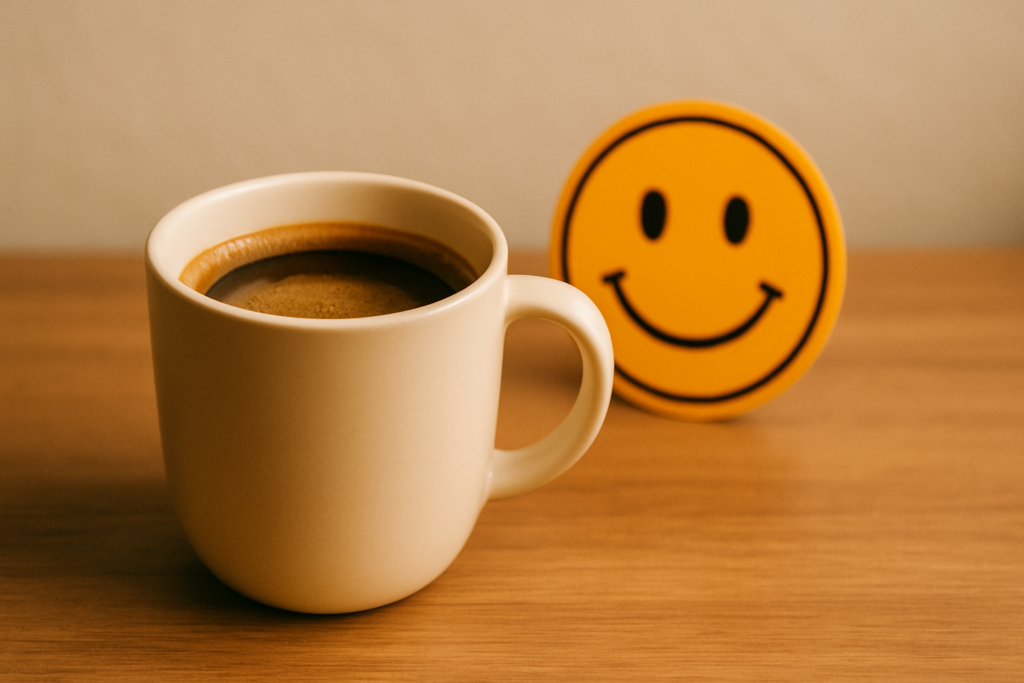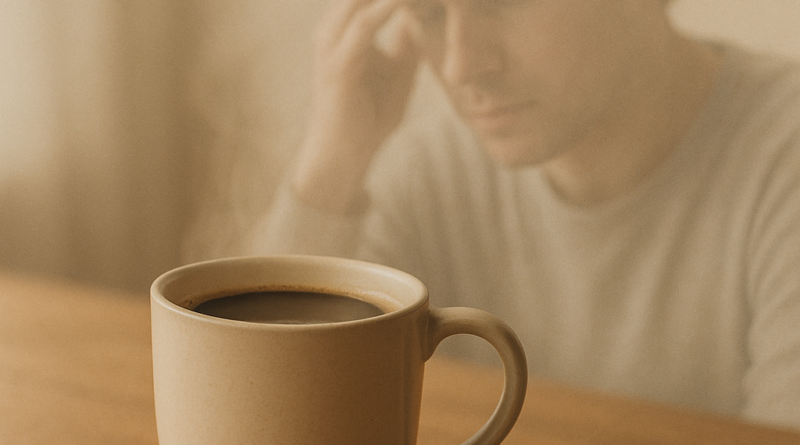Coffee and Mental Health: Can Your Daily Brew Affect Mood and Anxiety?
Can Coffee Really Affect Your Mood?
For many of us, coffee is more than a caffeine fix—it’s the comforting cue that the day has officially begun. That first sip helps us wake up, think clearly, and ease into the morning rhythm. But have you ever noticed how it affects your mood? Can coffee actually lift your spirits—or, in some cases, fuel feelings of anxiety or unease?
You’re not imagining things. More and more research is exploring the link between coffee and mood. And while the effects aren’t the same for everyone, we’re starting to understand why. Some people say their cup of coffee makes them feel energized, upbeat, and ready to take on the day. Others, especially those sensitive to caffeine, might feel jittery, on edge, or even more anxious.
The real story lies in how caffeine interacts with the brain—and that’s where things get interesting.
Caffeine and the Brain: What’s Actually Happening?
Caffeine is a stimulant, but not in the way most people think. It doesn’t give you energy—it removes the feeling of tiredness. How? By blocking a neurotransmitter called adenosine, which normally builds up during the day and makes you feel sleepy. With adenosine on pause, your brain stays more alert—and other brain chemicals, like dopamine, get a little boost too.

That dopamine effect is one reason why coffee can feel so good, especially in smaller doses. It’s a mild mood enhancer, and studies have found that moderate caffeine intake can be linked to improved alertness, reaction time, and even a more positive mood. But when the dose gets too high, or the person drinking it is especially sensitive, those same effects can flip—into irritability, restlessness, and even physical symptoms like jitteriness or heart palpitations.
In other words, it’s not just what’s in your cup—it’s how your body responds to it.
How Much Is Too Much?
When it comes to caffeine, moderation is key. While a moderate amount can boost your mood and focus, going overboard can quickly tip into discomfort—especially for people who are more sensitive to stimulants.
So how much is too much? For most healthy adults, up to 400 mg of caffeine per day—roughly three to four cups of brewed coffee—is considered safe by health authorities. But here’s the thing: sensitivity to caffeine varies wildly. Some people can sip espresso late at night and sleep like a rock. Others feel shaky after a single cup.
If you’ve ever felt anxious, irritable, or restless after your second (or even first) cup, you’re not alone. These are all signs that your body may be reaching its upper caffeine limit. That doesn’t mean you have to give up coffee—it might just mean you need less of it.
And let’s not forget: caffeine isn’t only in coffee. It sneaks into tea, energy drinks, sodas, chocolate, and even some medications. So if your mood feels off or your anxiety feels amplified, it could be helpful to take a quick look at the bigger caffeine picture.
Want a gentler option? You might try half-caff blends, smaller servings, or decaf. You can also explore low-caffeine alternatives like nootropic coffee or mushroom coffee, especially if you’re looking to support mood and mental clarity without the spike-and-crash.
Coffee and Depression: Helpful or Harmful?
Here’s some encouraging news you might not expect—research suggests that coffee could actually help protect against depression.
Several large studies have found that regular coffee drinkers may have a lower risk of developing depression—especially those who enjoy two to three cups a day. A meta-analysis of over 330,000 participants found that each additional cup of coffee per day was linked to a gradual decrease in depression risk. In fact, those who drank the most coffee had up to a 24% lower risk compared to those who drank the least. Researchers suggest this may be due not only to caffeine’s effect on mood-related brain chemicals like dopamine, but also to coffee’s antioxidant and anti-inflammatory compounds, which may support overall brain health (Australian & New Zealand Journal of Psychiatry, 2016).
Why might this be the case? Part of it could be the dopamine boost caffeine offers. Another part could be that coffee contains antioxidants and anti-inflammatory compounds—like chlorogenic acids—that may support brain health and emotional balance. It’s not just about the caffeine.
That said, coffee isn’t a treatment for depression—and it shouldn’t be used to self-medicate. If you’re feeling consistently low, tired, or withdrawn, it’s always best to talk to a qualified healthcare provider. But for many people, coffee can be a comforting and uplifting part of their routine—when used mindfully.
Coffee and Anxiety: When Your Brew Feels Like Too Much
While coffee may lift some people’s spirits, for others it can stir up something less pleasant—anxiety. That jittery, on-edge feeling you sometimes get after a strong cup? That’s not all in your head. Caffeine stimulates the central nervous system, and in higher amounts, it can mimic or intensify symptoms of anxiety.
If you’ve ever noticed a racing heartbeat, shallow breathing, restlessness, or even a touch of panic after coffee, you’re definitely not alone. Research shows that high caffeine intake can increase anxiety symptoms, especially in people who are already prone to them. In fact, in clinical settings, caffeine is sometimes used to induce anxiety responses when testing treatments—so it’s clear the link is real.
This doesn’t mean coffee is off-limits if you have anxiety—but it does mean paying attention to how you feel after drinking it. If you’re already feeling a bit anxious or overstimulated, that second cup might not help. And if you’re using coffee to “power through” tiredness when your body is actually asking for rest, it can backfire emotionally.

Switching to a lighter roast, reducing your serving size, or choosing low-caffeine options like mushroom coffee with Lion’s Mane might offer the mental support you want—without tipping the balance into overwhelm.
Finding the Right Balance for Your Mind and Cup
In the end, coffee’s impact on mental health isn’t one-size-fits-all. What feels like a helpful boost for one person might feel overwhelming to another. The key isn’t necessarily cutting it out—it’s understanding how it fits into your own rhythm. Tuning into how you feel after each cup can be one of the simplest ways to support your emotional well-being.
Whether you stick with your go-to brew, switch to gentler options, or take breaks when your body asks for it, the goal is the same: feeling good, not just awake. Because when it comes to mood and mental clarity, what you drink should work with you—not against you.

